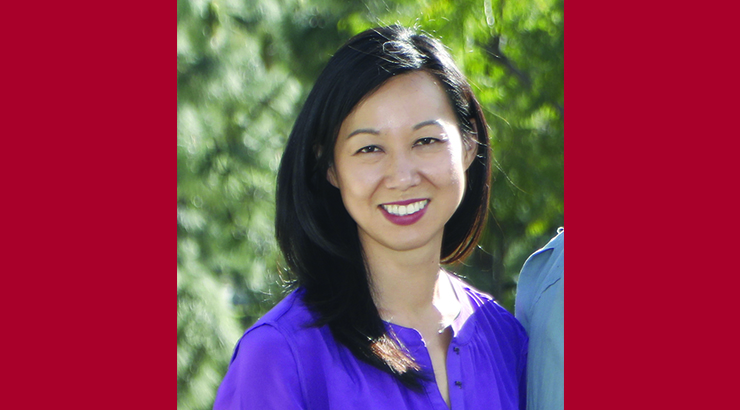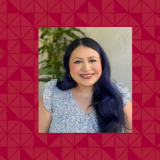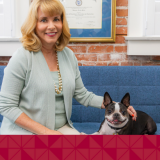
Attallah Faculty Cathery Yeh Awarded NSF Grant for Anti-Bias Mathematics Education
April 23, 2021
Cathery Yeh, Ph.D., Assistant Professor of Teacher Education in Chapman University’s Attallah College of Education Studies, and her colleagues have been awarded a more than $2.3 million National Science Foundation (NSF) grant for the project “Developing and Researching K-12 Teacher Leaders Enacting Anti-bias Mathematics Education (DREAM).” Chapman will receive more than $650,000 of the grant funding.
The goal of the DREAM project is to develop and study a community-centered, job-embedded professional development model that helps to preemptively reduce bias among classroom teachers. Dr. Yeh and her fellow investigators (Eva Thanheiser, Professor of Mathematics Education at Portland State University; Rebekah Elliott, Associate Professor of Mathematics Education at Oregon State University; and Ruth Heaton, Chief Executive Officer of Teachers Development Group) will partner with three school districts serving racially, ethnically, linguistically, and socio-economically diverse communities for a two-year professional development program. The aim is to reduce bias in classrooms, schools, and districts through teacher leaders’ engagement with families, colleagues, school community leaders, and administrators, allowing all stakeholders to come together to engage in dialogue for change.
Need for Anti-bias Mathematics Education
There is an increased recognition among educators that engaging students in mathematics education requires building on their knowledge base, regardless of background, English language proficiency or ability, and honoring their identities. Doing so also requires an explicit focus on anti-bias mathematics teacher education.
“All teachers, even those with positive intentions, have biases,” explained Dr. Yeh, “causing them to treat students differently. That impacts how they distribute students’ opportunities to learn in K-12 mathematics classrooms.”
Research is needed to examine models of mathematics teacher professional development that explicitly address bias reduction. To support this need, the DREAM project will focus on teacher leaders (TLs) who work in classrooms and are building their leadership stance toward bias reduction to support colleagues, departments, schools, and districts through critical, reflective dialogue. Building on earlier research, the project will seek to support and center on highlighting the mathematical brilliance Black, Indigenous, Latinx, and multilingual students whose communities are impacted by structural inequities, denying them full access to mathematics.
“Our aim is to disrupt persistent inequities that result from the bias teachers hold about students,” said Dr. Yeh. “It is only in collaboration with communities, education stakeholders, and leadership that we may begin to dismantle persistent, systemic educational inequities.”
Research Study
The two-phrase DREAM project will build on the existing Math Studio professional development model to create a Community Centered Math Studio, integrating the Anti-bias Mathematics Education Framework into the work. The study will then seek to understand how the professional development model supports the development of teacher leaders’ knowledge, dispositions, and practices for teaching and leading anti-bias mathematics education, and how teachers’ subsequent classroom practice can cultivate students’ mathematical engagement, discourse, and interests.
The project will measure aspects of teacher knowledge and classroom practice by integrating existing classroom observation rubrics and STEM interest surveys to assess the impact on teacher classroom practice and student outcomes. The project will engage 12 TLs and approximately 60 additional teachers working with those TLs in two years of professional development using the Community Centered Math Studio Model to support anti-bias mathematics teaching. Data will be collected for all teachers related to their participation in the professional learning, with six teachers being followed for additional data collection and in-depth case studies.
The project’s outcomes will contribute to theories of how TLs build adaptive expertise for teaching and leading to reduce bias in classrooms, departments, schools, and districts. In addition to publishing research papers and study findings, Dr. Yeh and her colleagues plan to share resources and tools with the broader community of mathematics educators and researchers for use in other contexts. They also have plans to record podcasts to share their findings during the project.
For information about the DREAM project, visit the NSF project description webpage. For more details about Dr. Cathery Yeh’s research and publications, read more about the recent launch of her Community Math Learning Center at Chapman and visit her full faculty bio.

